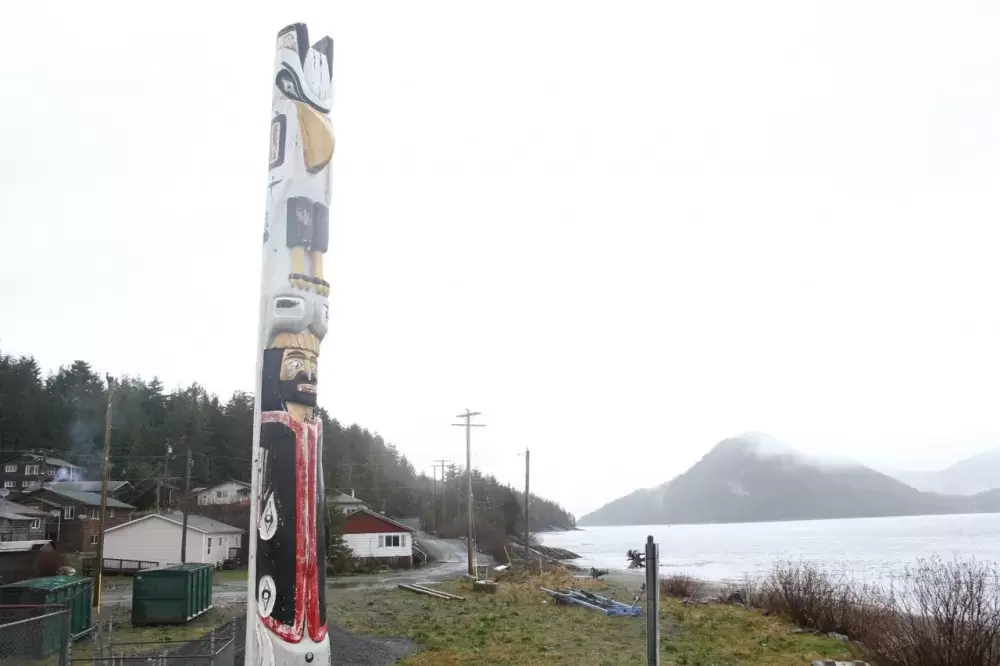As B.C.’s provincial health officer urges people to not congregate and risk spreading COVID-19, Nuu-chah-nulth communities on the west coast are locking down with even more stringent restrictions than what people across the province are struggling with.
Day-to-day life changed yet again for many in B.C. on Nov. 19, after Dr. Bonnie Henry announced mandatory masks in all public spaces, with no events or gatherings until at least Dec. 7. This includes children’s playdates or hosting visitors from outside one’s immediate household, with the exception of childcare by grandparents or two select individual visitors for those who live alone.
These measures followed a surge in active cases this fall, rising from under 1,700 in mid-Sept to 7,360 reported on Nov. 23.
“We have learned that as we move into winter, the virus spreads more easily,” said Henry during a Nov. 23 press conference. “It is our most challenging time, and we are all feeling the strain.”
On Nov. 23, 1,933 new COVID-19 cases were reported over the previous three days, including 48 on Vancouver Island. Currently 277 of those infected are hospitalized in the province, including 59 in intensive care.
“We need to urgently reduce the level of transmission in our province to keep our schools and workplaces open, and relieve that very real stress we are seeing right now on our health care system,” said Henry. “That means reducing our social gatherings, our social interactions and events.”
Meanwhile, Nuu-chah-nulth communities on Vancouver Island’s west coast had already tightened up on the day-to-day activities of residents. The Tla-o-qui-aht First Nation, which reported a COVID-19 case in Esowista on Sunday, Nov. 22, has required residents in its coastal reserves to not visit other households, with 9 p.m. curfew in place.
All members of the Ehattesaht First Nation living in Ehatis or adjacent Zeballos are being ordered to not gather with other households, after it was discovered on Nov. 20 that a positive case visited Zeballos School and the nearby Nuchatlaht community of Oclujce earlier in the week. Contact tracing by the B.C. Centre for Disease Control was to begin Saturday, Nov. 21.
“We are asking all members to self isolate until further notice,” stated the Ehattesaht First Nation in a notice to members living in the small coastal communities. “We are also asking all members to stay calm, wash your hands more than usual, wear a mask in the house if you feel sick or nervous about your own exposure, only socialize within your home/apartment.”
On Sunday, Nov. 22 Ahousaht members were told to postpone all non-essential travel to or from the Flores Island community.
“There are limited health services in our region,” stated the First Nation. “Tofino General Hospital has only one ventilator and room for less than 10 patients overall. Ahousaht has a simple clinic and no hospital beds in our community. Everyone’s safety is a huge concern.”
Those living in Ahousaht who work outside the community are now required to carry a travel safety plan approved by the First Nation’s Emergency Operations Centre before boarding a water taxi.
Masks are now mandatory in Ahousaht’s public spaces and schools, while all gatherings are prohibited and members are told to not meet with anyone outside of their household. A 9 p.m. to 6 a.m. curfew remains in place.
While this fall’s rising number of infections have heightened anxiety among people across the province, during the Nov. 23 press conference Health Minister Adrian Dix noted that B.C. has one of the highest survival rates of North American jurisdictions with a comparable size. Out of a population of just over 5 million, 27,407 people in the province have tested positive for COVID-19 this year. Of those infected, 348 have succumbed to the respiratory disease, giving B.C. a 98.7 per cent survival rate.







